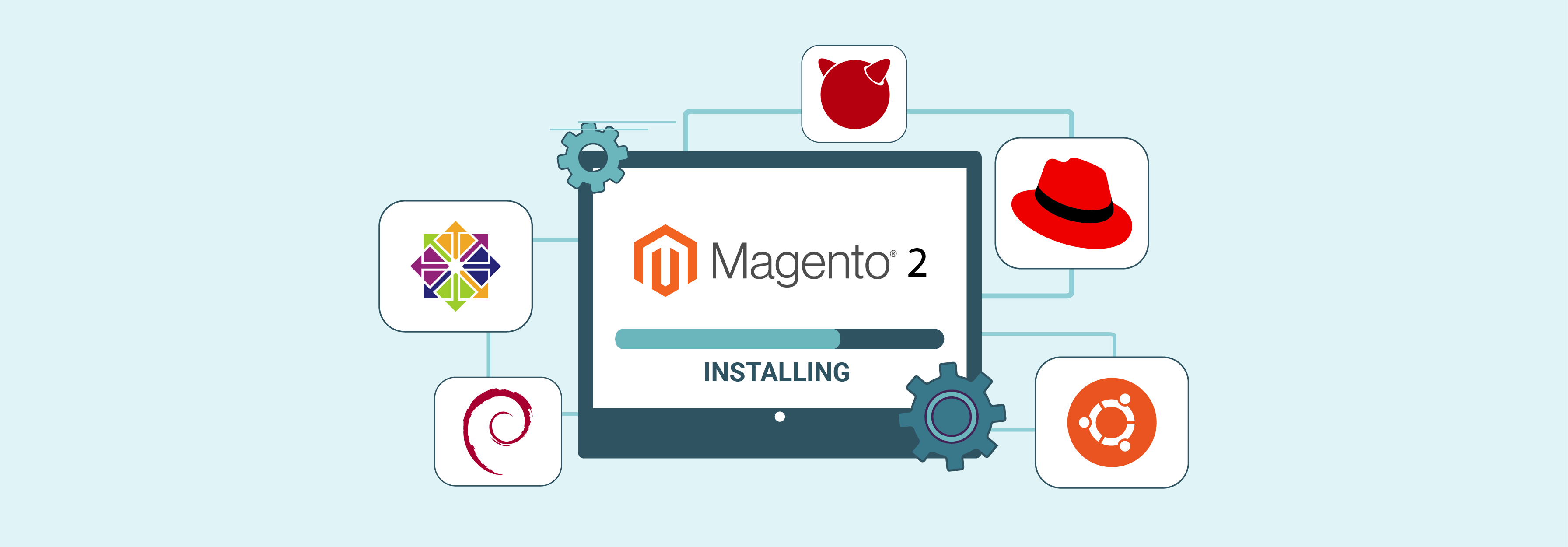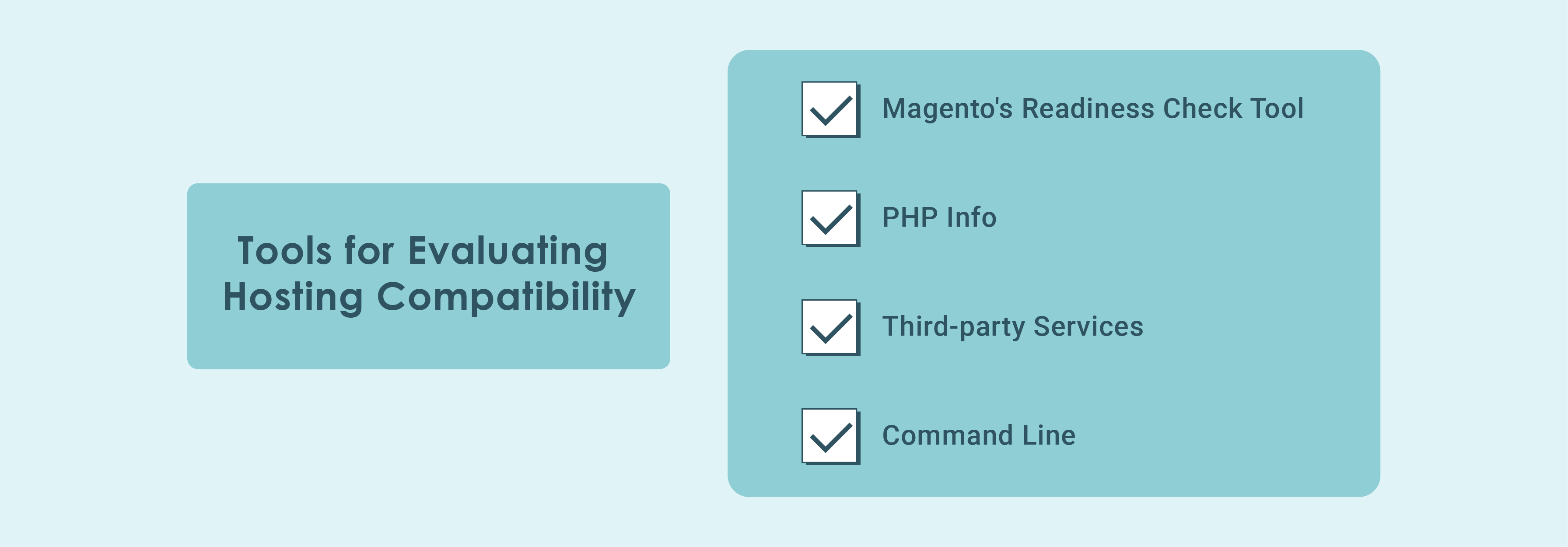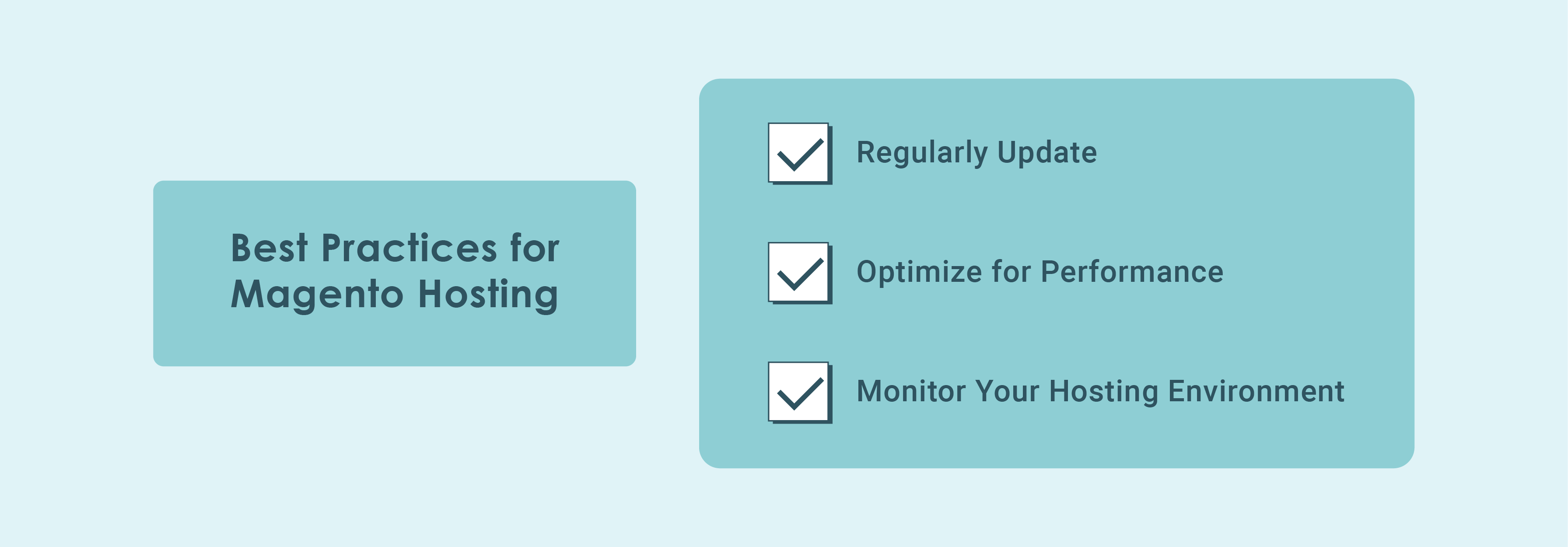
Hosting Requirements for Magento: Meet the Technical Specifications
Looking to meet the hosting requirements for Magento? It is necessary to obtain the most benefit from the Magento platform. This article covers the system requirements necessary for Magento. It provides valuable insights into ensuring your server is perfectly configured to meet Magento's needs.
Key Takeaways
-
For Magento stores to function properly, a minimum of 2 GB of RAM is necessary.
-
A LAMP (Linux, Apache, MySQL, PHP) or LEMP (Linux, Nginx, MySQL, PHP) stack is recommended for Magento.
-
Setting the PHP memory limit to at least 768MB and higher for development environments is essential.
-
Utilizing technologies such as Varnish, Redis, and Elasticsearch can significantly boost a Magento store's speed and efficiency.
Overview of Magento and its Hosting Requirements
Magento offers scalability, flexibility, and a range of features designed to enhance e-commerce businesses. However, to ensure that your Magento store operates smoothly and efficiently, you must choose the right hosting environment.
The hosting requirements for Magento involve a combination of hardware and software specifications. Meeting these system requirements is essential for the platform to function correctly and efficiently.
I. Hardware Requirements

The hardware determines how well your Magento store performs under normal conditions. It also allows it to scale to meet peak demands, such as during sales or seasonal traffic spikes.
1. Minimum Hardware Specifications
For a Magento store to operate effectively, the server should have a minimum of 2 GB of RAM. This baseline allows for the basic functioning of the store without significant performance issues.
It is the starting point, and as the volume of traffic and the complexity of your store increases, you will need more robust hardware.
2. Recommended Hardware Specifications
For medium to large stores or those experiencing high traffic volumes, upgrading to 4 GB of RAM or more is strongly recommended. Such an upgrade ensures smoother page loads and a more responsive interface.
In addition to memory, a modern, multi-core processor is advisable to handle Magento's substantial workload efficiently. It becomes increasingly important to process multiple concurrent requests as your catalog size and customer base grow.
II. Software Requirements

The software environment configures the operational framework of an eCommerce store. Magento is designed to run on a specific technology stack that optimizes its performance and reliability.
1. Operating System, Database, and Web Server
Magento 2 requires either a LAMP (Linux, Apache, MySQL, and PHP) or a LEMP (Linux, Nginx, MySQL, and PHP) stack. These configurations are well-supported and widely used, making them reliable choices for your Magento store.
-
Linux: Linux is the preferred operating system, given its stability and performance.
-
Apache 2.4 or Nginx 1.x: Both web servers are supported, with Nginx often favored for its high performance and efficiency in handling static content.
-
MySQL 8.0 or MariaDB 10.4: Magento 2 relies on MySQL or MariaDB for database management. It requires the recent versions for its advanced features and improved performance.
2. PHP Configuration and Extensions
Magento 2.4 and subsequent versions require PHP 7.4 or later. This version of PHP offers significant improvements in speed and security over its predecessors.
Magento 2 hosting necessitates several PHP extensions to function correctly. Ensuring these PHP extensions are installed and enabled on your server is needed for the smooth operation of your Magento 2 store.
These extensions provide critical capabilities to the Magento system, including:
-
curl: For data transfer using various protocols. -
gd, intl: For image processing and internationalization support. -
mbstring, openssl: For multibyte string processing and Secure Sockets Layer (SSL) connections.
Key Server Requirements for Magento 2.4 and Later
The Magento 2.4.x series has specific recommendations that are vital for optimizing store performance. These recommendations encompass various aspects, from PHP settings to database configurations and beyond.
1. PHP Memory Limit
One of the foundational requirements for Magento 2.4.x is the PHP memory limit. Magento recommends setting the PHP memory limit to at least 768MB. However, for development environments, a limit of 2GB or higher is preferred.
This substantial memory allocation is necessary to support the extensive operations Magento performs. It is required for data processing, extensions, and customizations that can be memory-intensive.
2. Database Configuration for Optimal Performance
Configuring MySQL or MariaDB for optimal performance is another critical aspect of setting up a server for Magento 2.4.x. Proper configuration of the database can significantly impact the speed and responsiveness of your Magento store.
It includes settings related to query caching, buffer sizes, and table optimization. Adhering to Magento's recommended database settings ensures that database operations are streamlined.
Utilizing Advanced Technologies for Speed and Efficiency
Magento 2.4.x also benefits greatly from the integration of advanced technologies designed to boost site speed and improve user experience. These technologies include:
1. Varnish
A powerful HTTP accelerator, Varnish is recommended for full-page caching in Magento 2.4.x. It significantly reduces server load and improves page loading times, directly contributing to a better customer experience.
2. Redis
Magento recommends using Redis for session storage. Redis offers a fast, persistent storage solution, ensuring session data is quickly accessible. It is particularly beneficial for sites with high traffic volumes.
3. Elasticsearch
As the default search engine for Magento 2.4.x, Elasticsearch offers powerful search capabilities. It significantly improves search efficiency and accuracy on Magento sites. It is especially important for e-commerce platforms, where search functionality can directly influence conversion rates.
Operating Systems and Magento 2 Compatibility
The foundation of a successful Magento deployment significantly depends on the underlying operating system. The choice of operating system can impact not only the performance but also the reliability and security of a Magento 2 store.
I. Supported Operating Systems for Magento 2

Magento 2 is designed to be compatible with a variety of Unix-based operating systems, which are known for their stability and performance in serving web applications. The primary supported operating systems include:
1. Linux Distributions
CentOS, Ubuntu, Debian, and RedHat Enterprise Linux. These Linux distributions are widely used in server environments and offer great support and community resources for Magento 2 installations.
2. Other Unix-like Systems
While not as commonly used as the Linux distributions, other Unix-like systems, such as FreeBSD, may also support Magento 2. However, these operating systems must meet the software dependencies and environmental requirements.
II. Using RedHat Enterprise Linux

Among the supported operating systems, RedHat Enterprise Linux (RHEL) is often recommended for Magento 2 installations. RHEL is a premier commercial Linux distribution that offers several distinct advantages for Magento 2 stores.
1. Stability and Reliability
RHEL is known for its stability and reliability, two factors important for any e-commerce platform. With its strict testing protocols and release cycles, RHEL ensures that each version is thoroughly vetted for enterprise use.
This level of stability minimizes the risks associated with system crashes or performance degradation.
2. Enhanced Security
Security is paramount in the e-commerce space, where sensitive customer data and financial transactions are involved. RHEL provides robust security features, including SELinux for advanced access control policies and system-wide encryption.
Regular security updates and patches are also part of the subscription, helping to protect Magento 2 stores from new vulnerabilities as they are discovered.
3. Performance Optimization
RHEL is optimized for performance in enterprise environments, offering advanced system resource management and scalability features. For Magento 2 stores, this means the ability to handle high volumes of traffic and transactions efficiently.
4. Support and Ecosystem
Subscribers to RHEL benefit from Red Hat's comprehensive support. It includes access to their knowledge base, technical support, and software updates.
This ecosystem is invaluable for businesses requiring immediate assistance. The extensive RHEL and Magento communities also provide various plugins, tools, and advice to further enhance and customize your store.
5. Compliance and Compatibility
RHEL complies with various regulatory standards. It makes RHEL a suitable choice for businesses in industries with strict compliance requirements.
Its compatibility with a wide range of hardware and software also ensures access to the latest technology innovations.
How to Check if Your Hosting Meets Magento 2 Requirements
You should compare your hosting with Magento’s detailed hosting specifications for both Magento Open Source and Adobe Commerce.
When you install Magento, ensure that your hosting service includes a compatible PHP version, the required SMTP server, and at least 2 GB of RAM. Your hosting plan should support Apache for enhanced performance, necessary Magento extensions, and compatibility with Magento's latest versions.
1. Tools for Evaluating Hosting Compatibility

-
Magento's Readiness Check Tool: :When you install Magento 2.4.x, the setup process includes a readiness check. It verifies your hosting environment against Magento's requirements.
-
PHP Info: Running a PHP info file (phpinfo.php) on your server can help you verify the PHP version and extensions.
-
Third-party Services: Services like Magereport. com can scan your Magento site to identify system dependencies and recommend improvements.
-
Command Line: You can use SSH to access your server and execute commands like php -v, mysql --version. Checking for specific PHP extensions (php -m) can manually confirm your server's compatibility.
2. Evaluating Hosting Providers
When selecting a Magento hosting provider, consider the following:
-
Magento Expertise: Choose providers recommended by Magento or known for specializing in Magento hosting. It ensures they understand the Magento platform's intricacies, from Magento Open Source to Magento Commerce (Enterprise).
-
Performance and Scalability: The best Magento hosting providers offer plans that cater to Magento's memory requirements and traffic handling. It ensures your store remains fast and accessible even during peak times.
-
Security: Look for hosting services that prioritize security, with features like SSL certificates, firewalls, and regular backups.
-
Magento Support: Providers familiar with Magento can offer invaluable support for Magento-specific issues. The support ranges from installation difficulties to optimizing Magento extensions.
3. Best Practices for Magento Hosting

-
Regularly Update: Keeping your Magento version up-to-date ensures compatibility and security. Magento 2 continually evolves, and your hosting environment should adapt accordingly.
-
Optimize for Performance: Utilize caching mechanisms like Redis or Varnish and ensure your server configuration is optimized for Magento's requirements.
-
Monitor Your Hosting Environment: Use tools like New Relic or Magento's built-in performance monitoring. These tools enable you to keep an eye on your hosting environment's health and make adjustments as needed.
FAQs
1. What are the minimum hardware requirements for a Magento store?
For Magento to run effectively, the server should have a minimum of 2 GB of RAM. This specification allows for the basic functioning of the store. As the store's complexity and traffic volume increase, the need for more robust hardware becomes essential for optimal performance.
2. Which software stack is recommended for hosting Magento?
Magento requires either a LAMP (Linux, Apache, MySQL, and PHP) or a LEMP (Linux, Nginx, MySQL, and PHP) stack. These configurations are well-supported, widely used, and provide a reliable foundation for your Magento store. Magento 2.4 and subsequent versions need PHP 7.4 or later, MySQL 5.7 or later, and either Apache 2.4 or Nginx 1.x for the web server.
3. How does the PHP memory limit affect Magento 2.4.x performance?
Magento recommends setting the PHP memory limit to at least 768MB to support its extensive operations effectively. For development environments, a limit of 2GB or higher is preferred. This memory allocation is necessary to accommodate data processing, extensions, and customizations.
4. What advanced technologies can enhance the performance of Magento 2.4.x?
Integrating technologies like Varnish for full-page caching, Redis for session storage, and Elasticsearch for search capabilities is highly beneficial. These technologies significantly reduce server load, improve page loading times, and enhance search efficiency.
Summary
Meeting the requirements of Magento ensures optimal performance of your eCommerce store. The right hosting environment is not just about meeting the minimum requirements. It is also about embracing best practices, utilizing advanced technologies, and choosing a hosting service recommended by Magento. Check out the plans that offer a Magento optimized server for top eCommerce performance.



